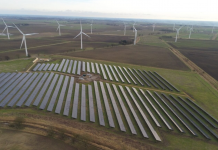
The UK’s reliance on gas
British reliance on volatile international gas markets has come into sharp focus. Spikes in energy costs led to Ofgem’s 80% price cap increase to £3,549 at the end of August. Less than two weeks later the government announced a two-year “Energy Price Guarantee” limiting consumer costs to £2,500. After an outcry at the estimated £140 billion that this would cost the British people, the scheme will now only run until April 2023.
With energy the most important issue facing Britons today, a recent YouGov survey[1] revealed that 43% of UK adults believe the country imports too much gas. This increases to 54% among those who voted Conservative in the 2019 general election. With energy top-of-mind, it should be no surprise that 81% of UK adults support government investment in energy storage.
But the plan that the government originally announced relies heavily on “long term energy contracts with domestic and international gas suppliers,” “accelerating all sources of domestic energy, including North Sea oil and gas production,” and ending “the moratorium on extracting our huge reserves of shale, which could get gas flowing in as soon as six months, where there is local support.”[2] More oil, gas, and fracking.
Achieving net zero
Regrettably, these are not long-term solutions that strengthen the UK’s ability to decarbonise and achieve or net zero goals. Furthermore, this approach does nothing to utilise our abundant supply of renewable energy.
And while inflation increases globally and Russia has weaponized gas after its invasion of Ukraine, added to the existing net zero commitments, means that world governments are prioritising renewable energy at an incredible rate of growth.
Much of this growth has been led by the UK, where the transition to renewable energy has also driven an aggressive transition to net zero, and recently materially upped the country’s ambitions for offshore wind generation capacity. And the British Government has supported the development of the grid to become one of the most innovative, capable, efficient, and resilient national power networks.
Within this context, long-duration energy storage (LDES) has a critical role to play to enable the UK’s renewable energy potential and supply cheap, green power, deliver grid stability, and importantly, energy self-sufficiency.
The cost of wasted wind
From 1 September 2021 to 22 May 2022, the UK produced 1,300 GWh of electricity from curtailed wind energy. £150 million in constraint payments were made, and because this energy wasn’t able to be stored, the UK also paid £240 million for fossil fuels to replace the unused renewable wind power.
With the UK unable to use all of the wind energy it produces today, what happens when additional wind capacity comes online, as occurred recently with Hornsea 2?
Unfortunately, it means additional wasted renewable energy with additional constraint payments because fossil fuels are still needed to make up the difference. But it also means that the grid becomes increasingly unstable because wind and solar are unable to provide grid stabilisation. Without stabilisation, the grid could face widespread blackouts.
Long-duration storage is the long-term solution
The long-term solution to the UK’s energy crisis is not to drill for more oil and gas or to increase fracking, it’s to capture the renewable energy that is already being produced in order to reduce fossil fuel usage, achieve grid stability, meet our net zero goals, and achieve energy security.
Rupert Pearce, CEO of Highview Power, leverages his background in leadership, transformation, and business strategy to position the company as a global leader in accelerating the energy transition. Prior to joining Highview Power, he served for nearly a decade as CEO of Inmarsat PLC, the world’s leading mobile satellite operator.
[1] https://highviewpower.com/news_announcement/uk-energy-security-undermined-by-lack-of-energy-storage-capabilities/
[2] https://www.gov.uk/government/speeches/pm-liz-trusss-opening-speech-on-the-energy-policy-debate



